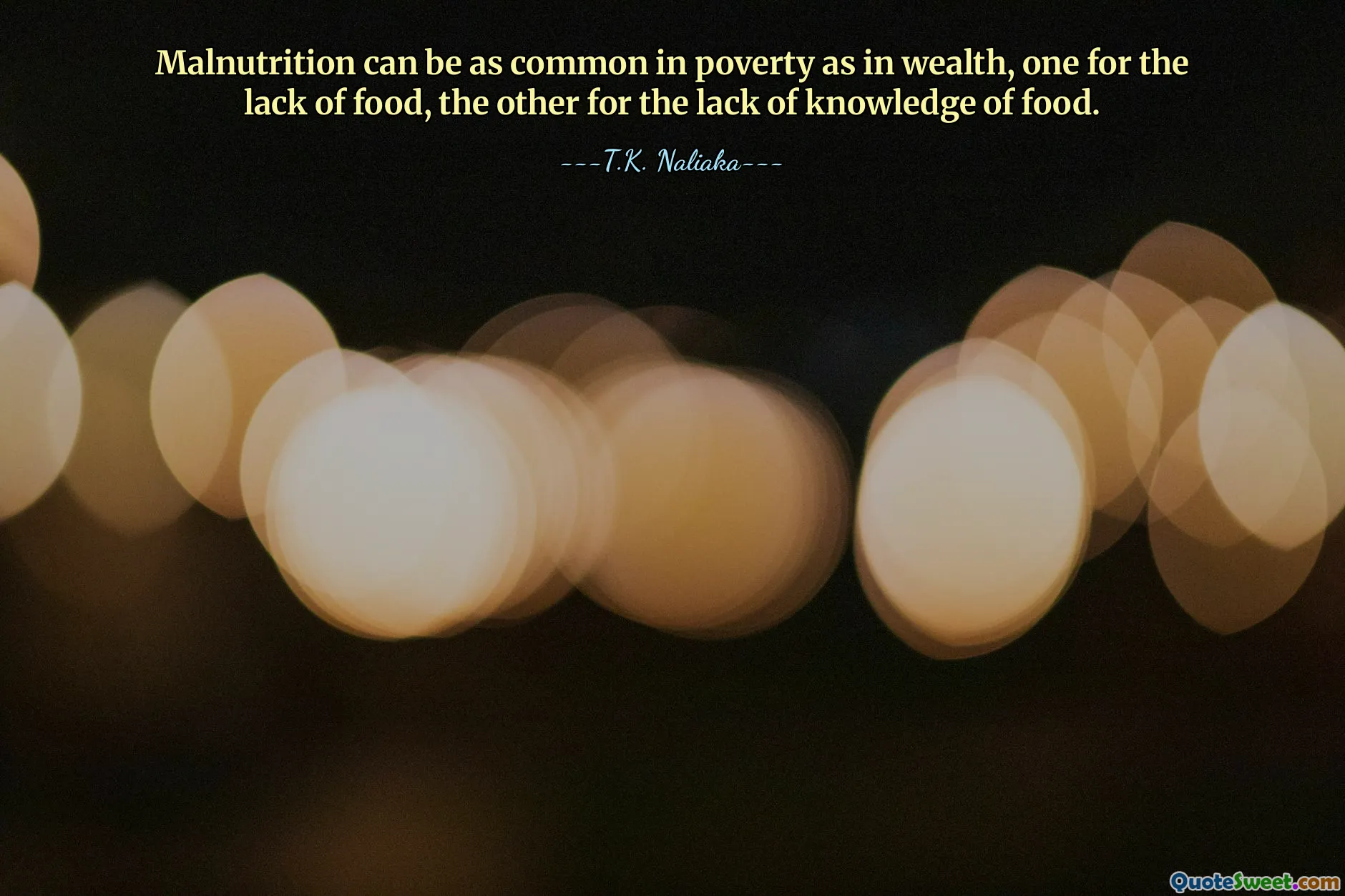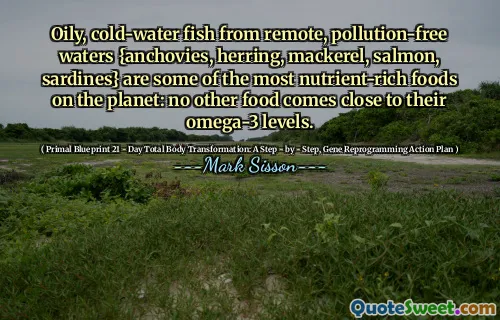
Malnutrition can be as common in poverty as in wealth, one for the lack of food, the other for the lack of knowledge of food.
This quote poignantly highlights the paradoxical nature of malnutrition, connecting it to both poverty and wealth but for fundamentally different reasons. It challenges the simplistic notion that malnutrition is only a problem of scarcity or poverty. Instead, it unveils a deeper, often overlooked issue that even in wealth, malnutrition can arise from ignorance—specifically a lack of knowledge about proper nutrition.
In poverty, the problem is straightforward: insufficient access to nutritious food leads to malnutrition. People struggle to meet basic caloric and nutrient needs, which affects their health and development. However, wealth does not inherently guarantee good nutrition. Those with abundant resources might still suffer from malnutrition due to poor dietary choices, misinformation, or cultural habits that prioritize quantity or indulgence over quality. This interpretation invites reflection on the role education, awareness, and informed decision-making play in addressing malnutrition.
Moreover, this dual perspective encourages a more holistic approach to tackling malnutrition worldwide. Solutions must not only focus on alleviating poverty and increasing access to food but also on improving nutritional literacy across all socioeconomic groups. It draws attention to the importance of public health messaging, school education programs, and access to credible nutritional information.
Overall, the quote underscores the complexity of health issues and the multifaceted approaches needed to solve them. It reminds us that combating malnutrition requires both addressing material scarcity and fostering knowledge, emphasizing that knowledge can be as critical a resource as food itself.











